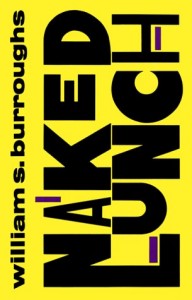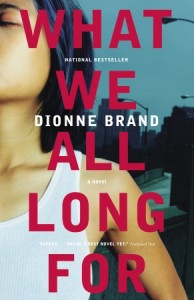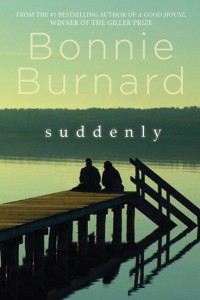 Sebastian Barry’s A Long Long Way surprised me, and that’s not easy to do. Yesterday, I had plucked it and Sarah Waters’s Affinity off my shelves to start reading upon finishing up the Mo Hayder. I don’t know why I chose one over the other — except the beginning passages of Barry’s novel reminded me in a way of A Star Called Henry, and once I started, I couldn’t put the book down until I was weeping at the end.
Sebastian Barry’s A Long Long Way surprised me, and that’s not easy to do. Yesterday, I had plucked it and Sarah Waters’s Affinity off my shelves to start reading upon finishing up the Mo Hayder. I don’t know why I chose one over the other — except the beginning passages of Barry’s novel reminded me in a way of A Star Called Henry, and once I started, I couldn’t put the book down until I was weeping at the end.
Willie Dunne, the son of a police commander in Dublin, hasn’t grown tall enough (you must be six feet) by his teenage years to join the constabulary so, instead, he joins the army at the very beginning of the First World War. Willie and his three sisters live in the Police Castle with their father, their mother having passed away in childbirth years before. The Dublin before the war is a very different Dublin during the war and even more so once the war is over. Home Rule becomes an issue, and the Irish soldiers fighting for freedom, country and King, go from heroes to villains in one fell swoop. And while Willie is far away from the politics invading his country, his life, his identity, stuck in the mud at the Somme, breathing in mustard gas at Ypres, and seeing death and destruction all around, the very nature of the issues are never far away either.
Barry, from what I can gather from his short bio at the beginning of the novel, is a playwright, and often you can sense this throughout. The dialogue and characters are so very well developed, so pristine in their environment, that you know there’s been a sure hand in their creation. But, often, much of what sits outside the characters and their dialogue, and this is a rare criticism for I enjoyed this novel very much, feels like stage direction — a lot of repetitive details, re-used observations, and a little bit too much of a dependence on heavy metaphors.
Yet, you can’t help but have your heart on your sleeve when reading Willie Dunne’s story. He has tender feelings for Gretta, a girl whose father was injured by Willie’s dad himself during a particular uprising; and this love keeps him alive as he sits covered in lice, grime and his own piss at the bottom of a trench. The horrors of the First World War have been fictionalized by Canadian writers so exceptionally over the course of our literary history. The horses sinking into the mud in The Wars, the morphine-addicted character in Three Day Road; the First World War defined Canada as a nation, we were exhalted for our bravery, we held positions, and this is how I’m used to reading the events. Yet, Barry has an entirely different perspective — Willie’s split in two. He’s on furlough when Easter 1916 happens, and he sees the violence in a way that changes his mind about how or why he should be fighting. But it’s so easy to be political when you’re not the one in the trench, in a way, when you’re the one throwing the rocks and refusing to go, abandoning the boys that went — but those boys are still suffering, barraged by mortars and attacked at every corner by the enemy, their lives are not their own, but they must own their actions.
And when Willie is left for his second furlough, and aspects of his homecoming are inevitably difficult, your heart breaks for him. Nothing has stayed the same in Dublin during the time he’s been at war, but he needs the stability, and needs to come home. What happens to a man no, rather, a boy born into his manhood by seeing and participating in unspeakable horror, who can’t go home again? It’s fitting when he arrives upon his doorstep that his youngest sister doesn’t recognize him, and when everything he hoped to come back to falls apart, Willie still does the honourable thing — he goes and visits the family of his fallen Captain, a man he respected because he held the line during the first instances of the gas when everyone else, rightfully, fled to save their lives.
There’s a cast of motley characters that survive alongside our hero. My favourite, Christy Moran, the second in command, a brash, ballsy, opinionated brave fellow who hands away a medal as easily as he would share a ration, manages to add a lightness to many situations. There’s the usual stereotyping of the Irish by the brass — and by some of the other soldiers — but the perspective on this war, the sacrifices that these boys made, and how it all changed because of what was happening at home, well, I’ve never read anything like it. While Henry Smart was holed up in the Post Office in A Star Called Henry, Willie Dunne was holed up in a trench in France and Belgium. They come from different places but they represent two very distinct aspects of Irish history, and Barry, alongside Roddy Doyle, creates an interesting, almost bookended reading experience should one choose to tackle the two novels together.
In the end, I wept, and wept, and there was more than one moment where I put my hand over my heart and held tight to my baby. This is not a post-partum emotional reader talking — this is the result of a powerful story wrapped in a wonderful character. In the end, I was very sad to see his story close.
READING CHALLENGES: The Off the Shelf Challenge of course, and as Barry is Irish, I’m counting A Long Long Way for Around the World in 52 Days. Over the last couple weeks, I think I’ve managed to get through about 10 books from my shelves. There are hundreds more to go but I doubt I’ll make my annual reading goal of 100 books. Simply too much went on this year. I think, too, I’ll forgo my annual top 10 books list as well — I’m just going to keep plowing through titles in the wee hours of the morning and actually enjoy the fact that our baby still wakes up a couple of times in the night to give me those stolen moments when everything is so quiet and my mind can wander over words, imagination, and impressive stories I don’t expect to enjoy as much as I do.
 I’ve been reading my bookshelves alphabetically for a while now, not consistently, if someone recommends a book to me or if I’ve got a book club meeting coming up, or if I’m particularly inspired, I stray, but I have managed to read many titles that have been sitting for ages this way, and I’m glad I’m doing it. I bought a copy of William S. Burroughs’ Naked Lunch in 1992. That’s right — that book has been sitting on my TBR shelf for twenty years. I went through a phase in high school where I read all kinds of beat literature, Kerouac, who still remains a favourite, changed my world when I first read him. I didn’t know books could be like that — On the Road was the perfect book for me as a kid, it filled me with a wonderful sense of curiosity, spit me out into the world, on road trips, to different provinces, adventures away from home and I have such fond memories of the physical act of reading those books.
I’ve been reading my bookshelves alphabetically for a while now, not consistently, if someone recommends a book to me or if I’ve got a book club meeting coming up, or if I’m particularly inspired, I stray, but I have managed to read many titles that have been sitting for ages this way, and I’m glad I’m doing it. I bought a copy of William S. Burroughs’ Naked Lunch in 1992. That’s right — that book has been sitting on my TBR shelf for twenty years. I went through a phase in high school where I read all kinds of beat literature, Kerouac, who still remains a favourite, changed my world when I first read him. I didn’t know books could be like that — On the Road was the perfect book for me as a kid, it filled me with a wonderful sense of curiosity, spit me out into the world, on road trips, to different provinces, adventures away from home and I have such fond memories of the physical act of reading those books.







